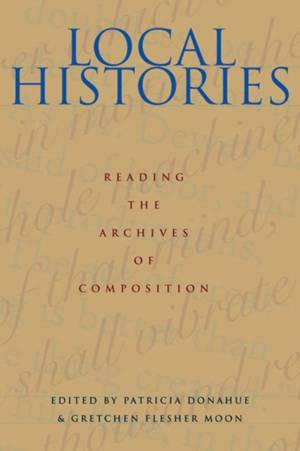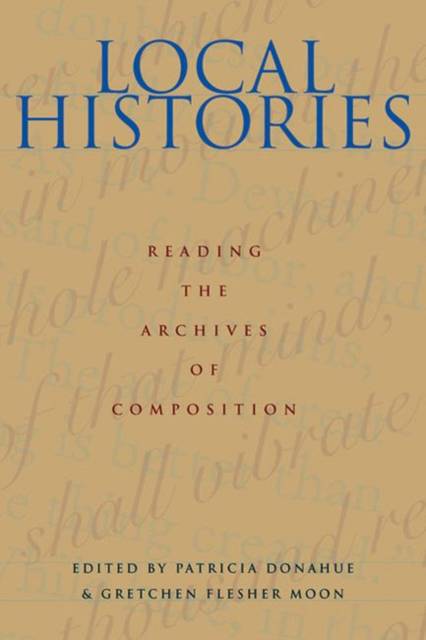
- Afhalen na 1 uur in een winkel met voorraad
- Gratis thuislevering in België vanaf € 30
- Ruim aanbod met 7 miljoen producten
- Afhalen na 1 uur in een winkel met voorraad
- Gratis thuislevering in België vanaf € 30
- Ruim aanbod met 7 miljoen producten
Zoeken
Local Histories
Reading the Archives of Composition
€ 91,95
+ 183 punten
Omschrijving
In Local Histories, the contributors seek to challenge the widely held belief that the origin of American composition as a distinguishable discipline can be traced to a small number of elite colleges such as Harvard, Yale, and Michigan in the mid- to late nineteenth century. Through extensive archival research at liberal arts colleges, normal schools, historically black colleges, and junior colleges, the contributors ascertain that many of these practices were actually in use prior to this time and were not the sole province of elite universities. Though not discounting the elites' influence, the findings conclude that composition developed in many locales concurrently. Individual chapters reflect on student responses to curricula, the influence of particular instructors or pedagogies in the context of compositional history, and the difficulties inherent in archival research. What emerges is an original and significant study of the developmental diversity within the discipline of composition that opens the door to further examination of local histories as guideposts to the origins of composition studies.
Specificaties
Betrokkenen
- Uitgeverij:
Inhoud
- Aantal bladzijden:
- 344
- Taal:
- Engels
- Reeks:
- Reeksnummer:
- nr. 163
Eigenschappen
- Productcode (EAN):
- 9780822959540
- Verschijningsdatum:
- 26/06/2007
- Uitvoering:
- Paperback
- Formaat:
- Trade paperback (VS)
- Afmetingen:
- 163 mm x 229 mm
- Gewicht:
- 349 g

Alleen bij Standaard Boekhandel
+ 183 punten op je klantenkaart van Standaard Boekhandel
Beoordelingen
We publiceren alleen reviews die voldoen aan de voorwaarden voor reviews. Bekijk onze voorwaarden voor reviews.










